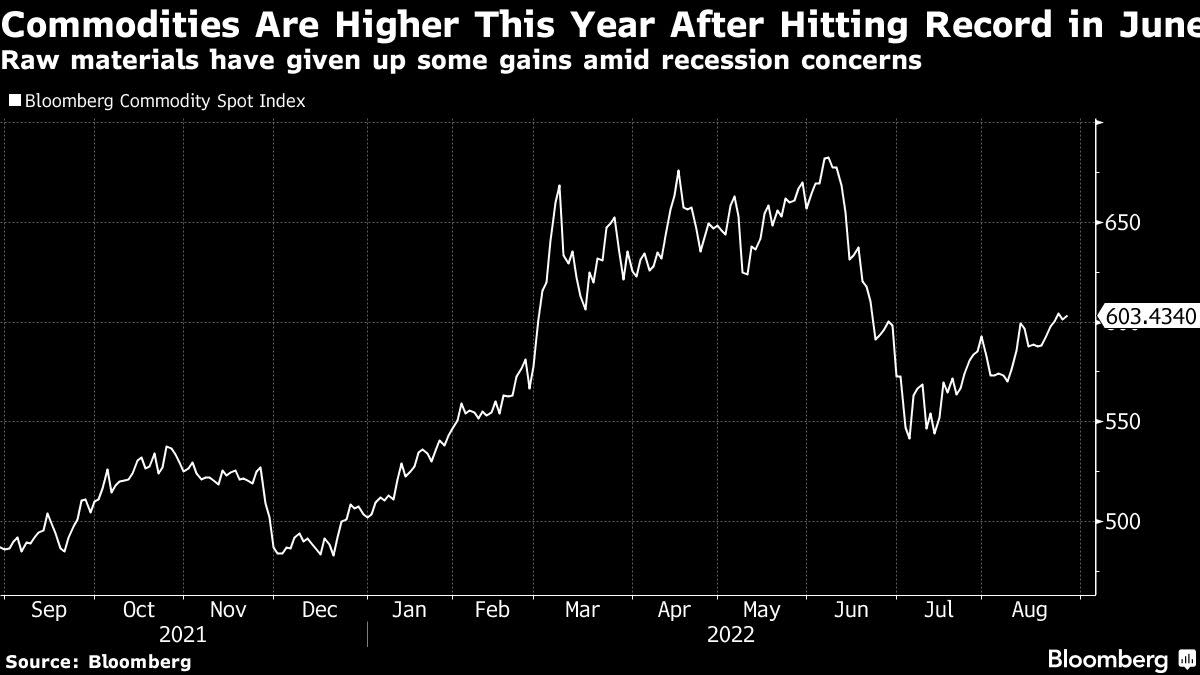
(Bloomberg) — Goldman Sachs Group Inc. urged investors to pile into commodities as most recession risks coursing through global markets are overblown in the near term, arguing that raw materials stand to rebound amid a profound energy crisis and tight physical fundamentals.
“Our economists view the risk of a recession outside Europe in the next 12 months as relatively low,” analysts including Sabine Schels, Jeffrey Currie and Damien Courvalin wrote in a note. “With oil the commodity of last resort in an era of severe energy shortages, we believe the pullback in the entire oil complex provides an attractive entry point for long-only investments.”
Commodities hit a record in June as Russia’s invasion of Ukraine disrupted output and snarled supply chains, then eased as recession concerns flared and central banks including the Federal Reserve tightened policy to contain inflation. Last week, Fed Chair Jerome Powell signaled more interest rate rises will follow this half, and global stocks hit a one-month low on Monday.
“From a cross-asset perspective, equities could suffer as inflation stays elevated and the Fed is more likely to surprise on the hawkish side,” Goldman said in the note, which was entitled ‘Buy commodities now, worry about the recession later’. It added: “Commodities, on the other hand, are the best asset class to own during a late-cycle phase where demand remains above supply.”
Other leading Wall Street banks have been more cautious on the outlook commodities in recent months. Among them, Citigroup Inc. warned in July that crude oil could collapse to $65 a barrel by the end of this year if a demand-crippling recession hits. Brent crude as was last at $101.70.
Goldman Sachs did caution the path ahead may not be smooth, especially if the greenback extends gains, a trend that makes commodities more expensive for holders of other currencies. “We do acknowledge that the macro landscape remains challenging and the US dollar could rise further short term,” it said.
©2022 Bloomberg L.P.